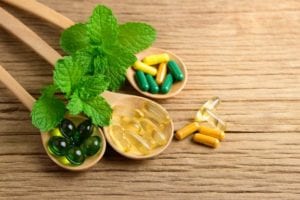Need help? Start a web chat with one of our pharmacists or our customer service representatives now!
HOURS OF OPERATION:
Monday to Thursday
8 AM to 5 PM (CST)
Friday
8 AM to 4 PM (CST)
Need help? Start a web chat with one of our pharmacists or our customer service representatives now!
HOURS OF OPERATION:
Monday to Thursday
8 AM to 5 PM (CST)
Friday
8 AM to 4 PM (CST)
When it comes to gynecological services, there are some things that need to be addressed in person...
READ MORE.You’ve probably read about the advantages of using an online pharmacy, but you’d still...
READ MORE.When it comes to gynecological services, there are some things that need to be addressed in person...
READ MORE.
In an era when women are eating on the run, skipping meals, or living on fast food, we may not be meeting our nutritional needs. How do we make sure we’re staying healthy and energetic if we aren’t eating right?
Through taking dietary supplements, mostly.
According to data released by a CRN Consumer survey, 40 percent of adults take an herbal/botanical supplement to address specific health concerns like boosting their immune system, weight management, and general wellness.
However, more does not equal better when it comes to supplements.
Taking megadoses of supplements can have adverse effects on your health. Toxic levels can also be reached through the long-term use of some supplements.
A joint study conducted by the American Association for the Study of Liver Disease (AASLD) and the National Institutes of Health (NIH) concluded that there has been a 20 percent increase in liver disease (hepatotoxicity) that appears to be linked to certain supplements.
Which are some of the most potentially harmful?
Powdered green tea extract is probably one of the more common herbal supplements on the market today. It’s sold in capsules or envelopes, and it can be found listed as an ingredient in weight loss products.
Also goes by: camellia sinensis
What are the risks? This herbal supplement has been associated with liver disease, liver failure, and death due to high concentrations of epigallocatechin-3-gallate (EGCG). It’s also associated with increased heart rate and high blood pressure, and it affects iron absorption.
This herb was used to treat everything from cough to menstrual cramps. Some manufacturers even claim it treats cancer. Comfrey is no longer legal to sell for internal use due to the serious health risks, but it’s common in poultices and ointments to relieve sprains and bruising.
Also goes by: blackwort, bruisewort, knitbone, slippery root, and symphytum officinale
What are the risks? liver damage, cancer, and death
Parts of this tropical plant have been successfully used to treat mild anxiety and insomnia. It’s powdered and sold packed into capsules or as an ingredient in other dietary supplements.
Also goes by: ava pepper, kava kava, and piper methysticum
What are the risks? Long-term or overuse can lead to impaired driving, worsening of Parkinson’s disease or depression, and death.
This synthetically produced compound is listed as the main ingredient or found on product labels as an additive to other supplements. Used alone or as part of a compound, vinpocetine is indicated for enhancing memory, focus, and energy, and as a weight-loss aid.
Also goes by: common periwinkle extract, lesser periwinkle extract, vinco extract minor
What are the risks? Research shows an association with low birth weight, an increased risk of miscarriage, and birth defects. It should not be used by pregnant women or those who plan on becoming pregnant.
Women, especially if they are pregnant, nursing, or postmenopausal, need additional calcium to support bone health and growth. It’s added to many foods and supplements, either singly or combined with Vitamin D.
Also goes by: calcium citrate
What are the risks? Taking any amount over the upper safe limit of 2,500 mg daily can contribute to plaque buildup in the arteries, hypercalcemia, kidney ailments, muscle weakness, and heart disease.
Because many herbal remedies and dietary supplements are plant-based, they aren’t regulated like drugs. Before adding anything to your diet, make sure that the ingredients won’t interact with your medications, purchase them from a reputable supplier, follow the recommended dosage, and look at the ingredients.
Before taking any supplement, check with your doctor to make sure it’s safe for your specific health situation.

The Canadian Pharmacy is licensed by the College of Pharmacists of Manitoba (IPS License #32588)
*Required by law in all Manitoba Pharmacies.
© 2005 - 2013 The Canadian Pharmacy | Powered by Pharmacywire
Be advised that, given the international nature of the practice of International Prescription Service (IPS) pharmacy, there may be limitations in the ability of the College of Pharmacists of Manitoba, which is the statutory licensing authority for pharmacies and pharmacists in the Province of Manitoba, to investigate and prosecute complaints from persons who receive services or products from an IPS pharmacy. Manitoba pharmacies are not permitted to fill US physicians' prescriptions. They can only fill prescriptions issued by a physician licensed in a province or territory of Canada. CPhM takes the position that it may be contrary to professional standards for a pharmacist to fill prescriptions by a physician, licensed in a province or territory of Canada, who has not established an acceptable patient physician relationship with you.
103-1780 Wellington Avenue Winnipeg, MB CANADA
R3H 1B3
Toll Free Phone: 1.866.335.8064
Toll Free Fax: 1-866-795-5627
International Phone: 1.204.697.5910
International Fax: 1.204.697.5915


0 comment
Comments are closed.